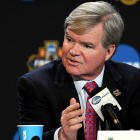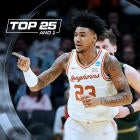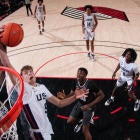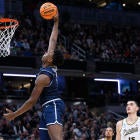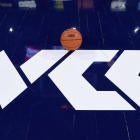With the women's and men's basketball championships set to take place over the next two days, the NCAA dropped a timely reminder on Saturday reminding everyone that, no, paying college players isn't going to happen.
The NCAA published a video featuring NCAA President Mark Emmert, who explained why paying football and basketball players, particularly on the men's side -- the big moneymakers in amateur athletics -- would actually lead to athletic departments eliminating other sports.
What would happen if NCAA schools started paying men’s basketball and football players? Other sports would be eliminated. pic.twitter.com/c0Y1s7NG1x
— NCAA (@NCAA) March 31, 2018
Emmert also attempted to explain why paying male athletes would require affording women's players the same opportunities. Here is Emmert's comments in full.
"Well I think you've got to remember this is in the context of higher education. These are educational universities and colleges that are conducting these games and you have to abide by the educational laws of the United States. You've got to provide women with the same opportunities and support that men receive. If you were going to pay salaries to male athletes, you'd have to do the same thing for female athletes and you'd have to come up with some explanation to the federal government as to why you would possibly not do it for one group versus another and I think that's completely untenable."
"I think the other issue is that if you were going to move into a model where you were just paying football and basketball athletes — at least that's the argument that always comes forward — the way athletic departments are going to do that is they're going to eliminate other sports. There's really no other way for them to do it. Yeah, if you just looked at the revenue from football you might be able to figure out how to pay football players but you would eliminate all the other sports that are out there in order to do that and take away opportunities from men and women."
The most sensible solution to amending the NCAA's outdated amateurism model would be to allow student-athletes to receive endorsement money and compensation for their own likeness in the open market. In doing so, it would eliminate the argument of whether money is being divvied up fairly; the NCAA would also be taken out of the picture, too, and third-parties willing to pay for their promotional services or endorsement could pay whatever they feel the athlete is worth.
Based upon Emmert's comments, it appears that a solution to the amateurism model -- or any solution for that matter -- is far from ever being seriously considered. Considering the timing of the video and its correlation with two major national championship games, it seems the NCAA wants you to know it, too.












